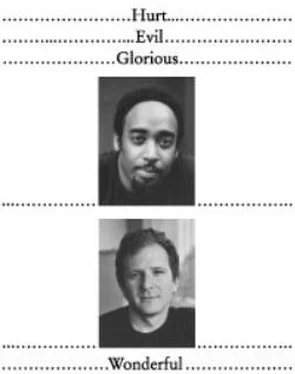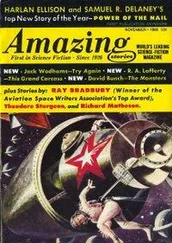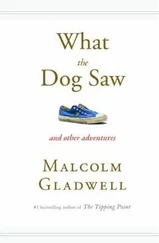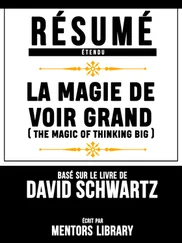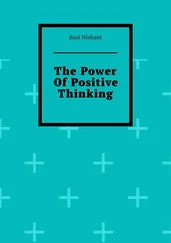Malcolm Gladwell - Blink - The Power of Thinking Without Thinking
Здесь есть возможность читать онлайн «Malcolm Gladwell - Blink - The Power of Thinking Without Thinking» весь текст электронной книги совершенно бесплатно (целиком полную версию без сокращений). В некоторых случаях можно слушать аудио, скачать через торрент в формате fb2 и присутствует краткое содержание. Жанр: Культурология, Психология, на английском языке. Описание произведения, (предисловие) а так же отзывы посетителей доступны на портале библиотеки ЛибКат.
- Название:Blink: The Power of Thinking Without Thinking
- Автор:
- Жанр:
- Год:неизвестен
- ISBN:нет данных
- Рейтинг книги:3 / 5. Голосов: 1
-
Избранное:Добавить в избранное
- Отзывы:
-
Ваша оценка:
- 60
- 1
- 2
- 3
- 4
- 5
Blink: The Power of Thinking Without Thinking: краткое содержание, описание и аннотация
Предлагаем к чтению аннотацию, описание, краткое содержание или предисловие (зависит от того, что написал сам автор книги «Blink: The Power of Thinking Without Thinking»). Если вы не нашли необходимую информацию о книге — напишите в комментариях, мы постараемся отыскать её.
Blink: The Power of Thinking Without Thinking — читать онлайн бесплатно полную книгу (весь текст) целиком
Ниже представлен текст книги, разбитый по страницам. Система сохранения места последней прочитанной страницы, позволяет с удобством читать онлайн бесплатно книгу «Blink: The Power of Thinking Without Thinking», без необходимости каждый раз заново искать на чём Вы остановились. Поставьте закладку, и сможете в любой момент перейти на страницу, на которой закончили чтение.
Интервал:
Закладка:
“What did I see?” he says. “I would lie in bed, thinking, How did I do this? I don’t know. It drove me crazy. It tortured me. I’d go back and I’d go over the serve in my mind and I’d try to figure it out. Did they stumble? Did they take another step? Did they add a bounce to the ball—something that changed their motor program?” The evidence he used to draw his conclusions seemed to be buried somewhere in his unconscious, and he could not dredge it up.
This is the second critical fact about the thoughts and decisions that bubble up from our unconscious. Snap judgments are, first of all, enormously quick: they rely on the thinnest slices of experience. But they are also unconscious. In the Iowa gambling experiment, the gamblers started avoiding the dangerous red decks long before they were actually aware that they were avoiding them. It took another seventy cards for the conscious brain to finally figure out what was going on. When Harrison and Hoving and the Greek experts first confronted the kouros, they experienced waves of repulsion and words popping into their heads, and Harrison blurted out, “I’m sorry to hear that.” But at that moment of first doubt, they were a long way from being able to enumerate precisely why they felt the way they did. Hoving has talked to many art experts whom he calls fakebusters, and they all describe the act of getting at the truth of a work of art as an extraordinarily imprecise process. Hoving says they feel “a kind of mental rush, a flurry of visual facts flooding their minds when looking at a work of art. One fakebuster described the experience as if his eyes and senses were a flock of hummingbirds popping in and out of dozens of way stations. Within minutes, sometimes seconds, this fakebuster registered hosts of things that seemed to call out to him, ‘Watch out!’”
Here is Hoving on the art historian Bernard Berenson. “[He] sometimes distressed his colleagues with his inability to articulate how he could see so clearly the tiny defects and inconsistencies in a particular work that branded it either an unintelligent reworking or a fake. In one court case, in fact, Berenson was able to say only that his stomach felt wrong. He had a curious ringing in his ears. He was struck by a momentary depression. Or he felt woozy and off balance. Hardly scientific descriptions of how he knew he was in the presence of something cooked up or faked. But that’s as far as he was able to go.”
Snap judgments and rapid cognition take place behind a locked door. Vic Braden tried to look inside that room. He stayed up at night, trying to figure out what it is in the delivery of a tennis serve that primes his judgment. But he couldn’t.
I don’t think we are very good at dealing with the fact of that locked door. It’s one thing to acknowledge the enormous power of snap judgments and thin slices but quite another to place our trust in something so seemingly mysterious. “My father will sit down and give you theories to explain why he does this or that,” the son of the billionaire investor George Soros has said. “But I remember seeing it as a kid and thinking, At least half of this is bull. I mean, you know the reason he changes his position on the market or whatever is because his back starts killing him. He literally goes into a spasm, and it’s this early warning sign.”
Clearly this is part of the reason why George Soros is so good at what he does: he is someone who is aware of the value of the products of his unconscious reasoning. But if you or I were to invest our money with Soros, we’d feel nervous if the only reason he could give for a decision was that his back hurt. A highly successful CEO like Jack Welch may entitle his memoir Jack: Straight from the Gut, but he then makes it clear that what set him apart wasn’t just his gut but carefully worked-out theories of management, systems, and principles as well. Our world requires that decisions be sourced and footnoted, and if we say how we feel, we must also be prepared to elaborate on why we feel that way. This is why it was so hard for the Getty, at least in the beginning, to accept the opinion of people like Hoving and Harrison and Zeri: it was a lot easier to listen to the scientists and the lawyers, because the scientists and the lawyers could provide pages and pages of documentation supporting their conclusions. I think that approach is a mistake, and if we are to learn to improve the quality of the decisions we make, we need to accept the mysterious nature of our snap judgments. We need to respect the fact that it is possible to know without knowing why we know and accept that—sometimes—we’re better off that way.
Imagine that I’m a professor, and I’ve asked you to come and see me in my office. You walk down a long corridor, come through the doorway, and sit down at a table. In front of you is a sheet of paper with a list of five-word sets. I want you to make a grammatical four-word sentence as quickly as possible out of each set. It’s called a scrambled-sentence test. Ready?
01 him was worried she always
02 from are Florida oranges temperature
03 ball the throw toss silently
04 shoes give replace old the
05 he observes occasionally people watches
06 be will sweat lonely they
07 sky the seamless gray is
08 should now withdraw forgetful we
09 us bingo sing play let
10 sunlight makes temperature wrinkle raisins
That seemed straightforward, right? Actually it wasn’t. After you finished that test—believe it or not—you would have walked out of my office and back down the hall more slowly than you walked in. With that test, I affected the way you behaved. How? Well, look back at the list. Scattered throughout it are certain words, such as “worried,” “Florida,” “old,” “lonely,” “gray,” “bingo,” and “wrinkle.” You thought that I was just making you take a language test. But, in fact, what I was also doing was making the big computer in your brain—your adaptive unconscious—think about the state of being old. It didn’t inform the rest of your brain about its sudden obsession. But it took all this talk of old age so seriously that by the time you finished and walked down the corridor, you acted old. You walked slowly.
This test was devised by a very clever psychologist named John Bargh. It’s an example of what is called a priming experiment, and Bargh and others have done numerous even more fascinating variations of it, all of which show just how much goes on behind that locked door of our unconscious. For example, on one occasion Bargh and two colleagues at New York University, Mark Chen and Lara Burrows, staged an experiment in the hallway just down from Bargh’s office. They used a group of undergraduates as subjects and gave everyone in the group one of two scrambled-sentence tests. The first was sprinkled with words like “aggressively,” “bold,” “rude,” “bother,” “disturb,” “intrude,” and “infringe.” The second was sprinkled with words like “respect,” “considerate,” “appreciate,” “patiently,” “yield,” “polite,” and “courteous.” In neither case were there so many similar words that the students picked up on what was going on. (Once you become conscious of being primed, of course, the priming doesn’t work.) After doing the test—which takes only about five minutes—the students were instructed to walk down the hall and talk to the person running the experiment in order to get their next assignment.
Whenever a student arrived at the office, however, Bargh made sure that the experimenter was busy, locked in conversation with someone else—a confederate who was standing in the hallway, blocking the doorway to the experimenter’s office. Bargh wanted to learn whether the people who were primed with the polite words would take longer to interrupt the conversation between the experimenter and the confederate than those primed with the rude words. He knew enough about the strange power of unconscious influence to feel that it would make a difference, but he thought the effect would be slight. Earlier, when Bargh had gone to the committee at NYU that approves human experiments, they had made him promise that he would cut off the conversation in the hall at ten minutes. “We looked at them when they said that and thought, You’ve got to be kidding,” Bargh remembered. “The joke was that we would be measuring the difference in milliseconds. I mean, these are New Yorkers. They aren’t going to just stand there. We thought maybe a few seconds, or a minute at most.”
Читать дальшеИнтервал:
Закладка:
Похожие книги на «Blink: The Power of Thinking Without Thinking»
Представляем Вашему вниманию похожие книги на «Blink: The Power of Thinking Without Thinking» списком для выбора. Мы отобрали схожую по названию и смыслу литературу в надежде предоставить читателям больше вариантов отыскать новые, интересные, ещё непрочитанные произведения.
Обсуждение, отзывы о книге «Blink: The Power of Thinking Without Thinking» и просто собственные мнения читателей. Оставьте ваши комментарии, напишите, что Вы думаете о произведении, его смысле или главных героях. Укажите что конкретно понравилось, а что нет, и почему Вы так считаете.
